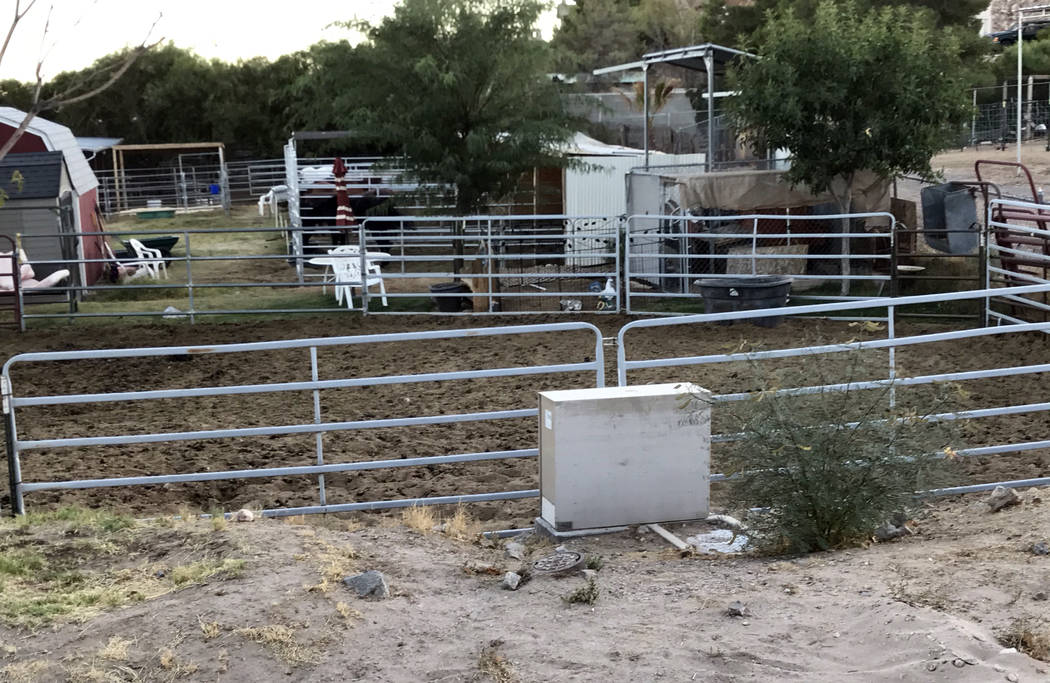Equine herpesvirus confirmed at local corral
The presence of equine herpesvirus at the Boulder City corrals was confirmed late last week, and the Boulder City Horseman’s Association is establishing procedures to protect the facility and prevent future outbreaks.
BCHA President Scott Pastore said the association will begin using a specialized cleaner to prevent the disease from returning. He also said all seven horses diagnosed with the disease had to be euthanized.
Desert Pines Equine Medical and Surgical Center confirmed the EHV1 diagnosis with a statement on Oct. 23.
“Unfortunately, it’s very contagious. … The virus is very easily transmitted by virtually anything,” said Dr. Richard Simmonds, interim state veterinarian for the state Department of Agriculture.
He said the virus can be in barns and corrals or on horse tack and can be spread at those locations or through those items as well as through horse to horse contact. Humans can also carry it if they’ve been exposed to it.
“It takes a very conscientious effort to prevent that,” said Simmonds.
To help protect the local corrals in the future from EHV1, the common areas will be sprayed down with Synbiont Ag Wash, Pastore said.
“It kills and prevents the virus,” he said.
The ag wash is food-grade and made without chemicals. Pastore said he ordered a 55-gallon drum of it, which makes 2,750 gallons when mixed with water. It is scheduled to arrive Monday. The wash is just for the common areas, and he said the individual lot owners are responsible for their areas.
Simmonds said he suspects the disease was brought to the corrals by an infected horse, and he and the BCHA are trying to track down the horses that have come and gone to try to determine where it came from.
According to Simmonds, the treatment for EHV1 is palliative, and once a horse has it, it’s just a matter of time before the disease runs its course. After exposure, it can take up to 14 days for the symptoms to present themselves.
Pastore said one of the first symptoms is rising temperature. From there, horses become wobbly, which is a sign of a neurological issue.
“That’s when the horse goes down, and once the horse goes down, it doesn’t get back up,” he said.
Simmonds said any owners who think their horse has been exposed to EHV1 should take its temperature twice a day. If it is 101.5 degrees or above, they should consider that a positive diagnosis until proved otherwise.
The corrals are under a mandatory quarantine placed there by the Department of Agriculture. According to Pastore, it will be enforced for 21 days from Oct. 28, when the last horse with the disease was euthanized.
Contact reporter Celia Shortt Goodyear at cgoodyear@bouldercityreview.com or at 702-586-9401. Follow her on Twitter @csgoodyear.
















